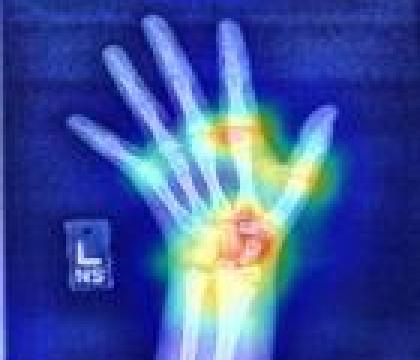2019 Artificial Intelligence in Medicine and Imaging Seed Grants
Artificial Intelligence (AI) provides an unprecedented opportunity to revolutionize healthcare, and the Stanford Center for Artificial Intelligence in Medicine and Imaging (AIMI Center) is at the forefront of the revolution in medical imaging. The primary mission of the AIMI Center is to solve clinically important imaging problems in medicine using AI. Drawing on Stanford’s interdisciplinary expertise in clinical medical imaging, bioinformatics, statistics, electrical engineering, and computer science, the AIMI Center aims to support the development of new AI methods applied across the medical imaging life cycle.
This call for proposals aims to stimulate and support the creation of innovative and high-impact ideas that will advance the field of medical imaging. Ideal seed grant projects can be completed in one year, are distinct from existing sponsored research, and are intended to form a basis for larger grant applications. The AIMI Center plans to award up to six seed grants of up to $75,000 each.
- Creation of novel AI-based methods for clinical image creation, reconstruction, and/or enhancement;
- Development and/or dissemination of AI systems that enhance early detection, reduce diagnostic errors, select appropriate treatment, or improve the quality and efficiency of medical imaging;
- Prospective evaluation of decision support algorithms in the clinical environment;
- Creation of large training sets for machine learning systems, including the development of methods that automatically label clinical images.
Each proposal must have an eligible principal investigator (see below) who is an affiliate faculty of the AIMI Center. PI’s whose primary appointment is not within the Departments of Radiology, Medicine, or Pathology must have a Co-PI from one of these three department. Co-PI's must meet the PI criteria listed below. All members of the Stanford faculty are invited to become affiliates of the AIMI Center and can apply here. Each PI can submit only one proposal per AIMI seed grant cycle.
Interdisciplinary teams that include team members (postdocs, grad students, research staff) from other schools/disciplines are encouraged. Investigators needing assistance procuring data sets or building algorithms are encouraged to contact the AIMI Center to discuss options for staff support and identify School of Medicine resources.
Faculty with PI eligibility are limited to those with tenure line (UTL), medical center line (MCL) research (NTLR), or clinician educator (CE) faculty at the rank of assistant professor and above who are full-time Stanford employees.
The research must relate directly to clinical imaging, and the objectives of the project should include an outcome that will benefit patients. Awardees must be willing to present progress of their project at AIMI meetings and events, e.g., research group meetings, seminars, symposiums, and retreats. Awardees are expected to acknowledge and inform the AIMI Center regarding any papers, presentations, and grants that involve the funded project. Awardees must also allow AIMI to promote the project through its website, social media, and other communication channels. A mid-year progress report will be due 6 months after the project start date, and a final progress report and presentation of results will be due at the end of the project period.
SELECTION PROCESS:
The AIMI Review Committee, consisting of scientists not involved in the proposed projects, will evaluate and rank proposals based on scientific merit, potential clinical impact, alignment with program priorities listed above, technical feasibility, and appropriateness of the budget. The Review Committee will review applications in April 2019. Applicants progressing to the finalist round will be invited to meet with the Review Committee in mid-May to present and discuss their proposal in-person. Based on the submitted materials and interactive discussions, the Review Committee will make recommendations on funding priority. Applicants will be notified in June for funding to begin on July 1, 2019.
SUBMISSION GUIDELINES:
All application materials must be submitted online through the Stanford Seed Funding website by 11:59pm on April 5, 2019.
- Online application
- Research proposal - no longer than 2 pages, single-spaced, 11 point type, 1 inch margins
- Budget and justification - use provided template in "Additional Resources" section below (RMG budget is not needed at this time)
- Biosketches for each member of the project team - use 5-page, NIH format
Proposals may request up to $75,000 for 12 months, and award amounts will be based on analysis of the budget justification. The release of funds will occur in two phases, the first half by the project start date and the second half after review of the mid-year progress report. Initial release of funds will be contingent upon timely receipt of all required documents and verification of research regulatory approvals.
Funds may be used for salary and tuition support of faculty, graduate students and other research staff, operating supplies, minor equipment items, prototyping expenses, imaging time, and travel directly associated with the research activity. The grants will not support general staff or administrative support. No indirect costs will be charged.
Research Compliance Questionnaire
